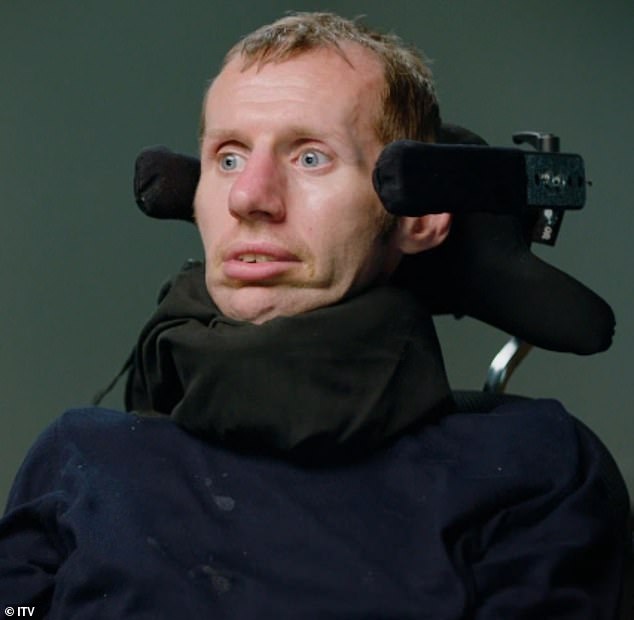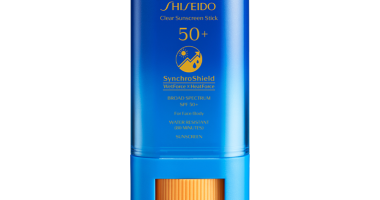The first symptom for rugby legend Rob Burrow was slurred speech, which hit while he was attending an awards show.
Within weeks, the otherwise fit and healthy athlete had been giving the crushing news that he had motor neurone disease (MND).
Burrow, father to daughters Macy and Maya, and son Jackson, died this week after a five-year long battle with the incurable condition, having devoted his final years campaigning for better awareness.
MND is a rare neurological condition that damages the nervous system over time, resulting in difficulties walking, speaking and breathing as the condition progresses. It’s not fully understood why it occurs and there are no effective treatments to halt its cruel march.
Around 5,000 adults in the UK have MND and there is a one in 300 risk of developing the condition over the course of a person’s life. Here, MailOnline breaks down the early warning signs of the fatal condition…


Rob Burrow opened up about his battle with motor neurone disease in an ITV documentary Lindsey and Rob: Living with MND


Burrow playing for the Leeds Rhinos. The friends made while playing for the team have played a big part in raising awareness for MND with former teammates completing challenges to raise money
Muscle twitching
Muscle twitches and cramps are among the early signs of MND.
This can also feel like a rippling sensation under the skin, according to Motor Neurone Disease Association (MNDA).
However, twitching by itself is not usually associated with neurological conditions like MND unless you have other symptoms present, the charity explains.
It can also happen with tiredness, stress, viral infection or general ill health.
Some tremors and twitches are normal and can be caused by caffeine, stress and age.


Rob posing with his wife Lindsey (left), eldest daughter Macy (back right), second daughter Maya (front right), and son Jackson (sitting on the arm of the wheelchair)


The rugby legend spent his entire club career with Leeds and made more than 400 appearances between 2001 and 2017 before his shock diagnosis in 2019
Extreme tiredness
The condition can make you feel lethargic and very tired.
MND is caused by a problem with cells in the brain and nerves called motor neurones.
These cells gradually stop working over time, but it’s not known why this happens.
However, MNDA says fatigue usually happens once other symptoms of MND become more obvious.
Weakness in the ankles or legs
Tripping, falling and finding it harder to climb the stairs can be a sign of MND.
That’s because the condition can causes muscle weakness in your ankles and legs.
When a muscle gets weaker it usually reduces in size, also known as wasting.
‘Foot drop’ can be an early symptom of MND, where one foot sometimes feels weak or drags, according to MNDA.
But it’s important to remember this could also be caused by an injury or another condition, but it should still be checked out by your GP.


The rugby star won the Challenge Cup at Wembley in 2014 and 2015 as well as three World Club Challenges and three League Leaders Shields
Weak or stiff hands
Dropping things due to having weak or stiff hands, could be a warning sign you have a neurological problem.
Just as it causes weakness in the ankles and legs, MND can cause you to have a weak grip, making it harder to open jars, do up buttons and even hold objects, the NHS says.
However, stiff hands or a weak grip can also be an indication of age related joint problems or a trapped nerve.
Slurred speech
Slurred speech is an early warning sign of MND.
That’s because people with MND suffer from weak muscles in the face, mouth, tongue or throat.
This can also cause difficulty in swallowing food, the NHS adds.
It can also affect the volume of your speech, according to MNDA.
The charity explains that faint speech can happen if you feel breathless and cannot support the volume of your speech.


Rob Burrow alongside wife Lindsey (who ran the half marathon), daughters Macy and Maya and Kevin Sinfield last year to raise awareness for Burrow’s condition
Emotional outbursts
The condition doesn’t just affect the muscles, but your mind too.
Because it is caused by a problem with cells in the brain and nerves called motor neurones, it can also change the way you behave and think.
In fact, up to half of people diagnosed with MND experience these changes, according to MNDA.
It can make it harder to stop yourself from crying or laughing in inappropriate situations, the NHS explains.
For most people these changes are mild and do not severely impact their daily life.
Source: Mail Online








